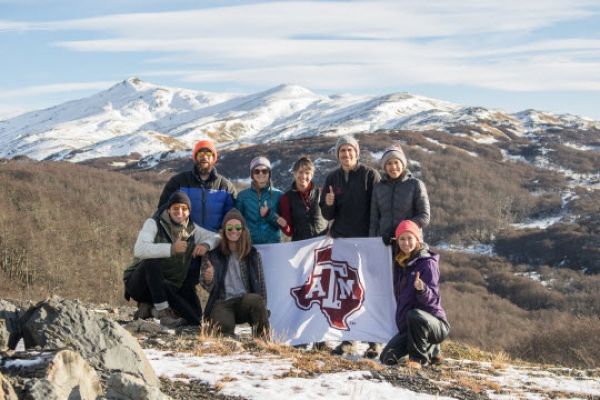Collecting peat samples from frozen land is far from the beach vacation most students imagine for their summer breaks. But for five Aggie geography majors, a freezing summer field expedition to the far reaches of the southern hemisphere was unforgettable.
From May 21 to June 8, 2018, Texas A&M University Department of Geography Assistant Professor and National Geographic Explorer Dr. Julie Loisel led a group of five current undergraduate students, along with a geophysicist from the University of Wyoming, Dr. Andrew Parsekian, to Tierra del Fuego, in southern Patagonia, Argentina. Patrick Campbell ’18, geography major, served as photographer and videographer on the trip.
Funded by a grant from the National Geographic Society, the expedition’s objective was to sample peatlands and determine carbon stocks using peat cores and ground-penetrating radar. The process of sampling each peatland location included: coring, subsurface GPR mapping and collecting surface vegetation samples. The team also set up a weather station and water-level data loggers in monitoring wells.
Peatlands are unique environments that hold deep layers of important environmental data. Peatlands are also “the most effective sink of carbon on the planet,” Loisel said.
Continue reading at Texas A&M University
Image via Patrick Campbell, Texas A&M University


